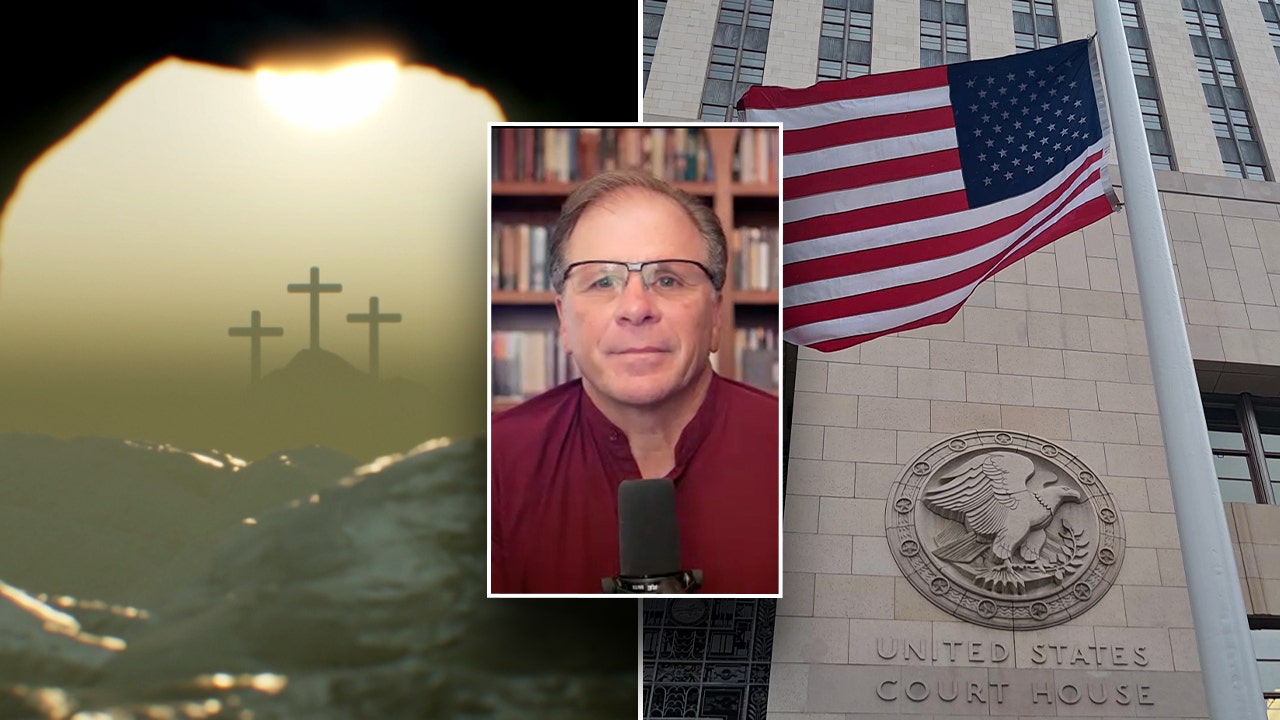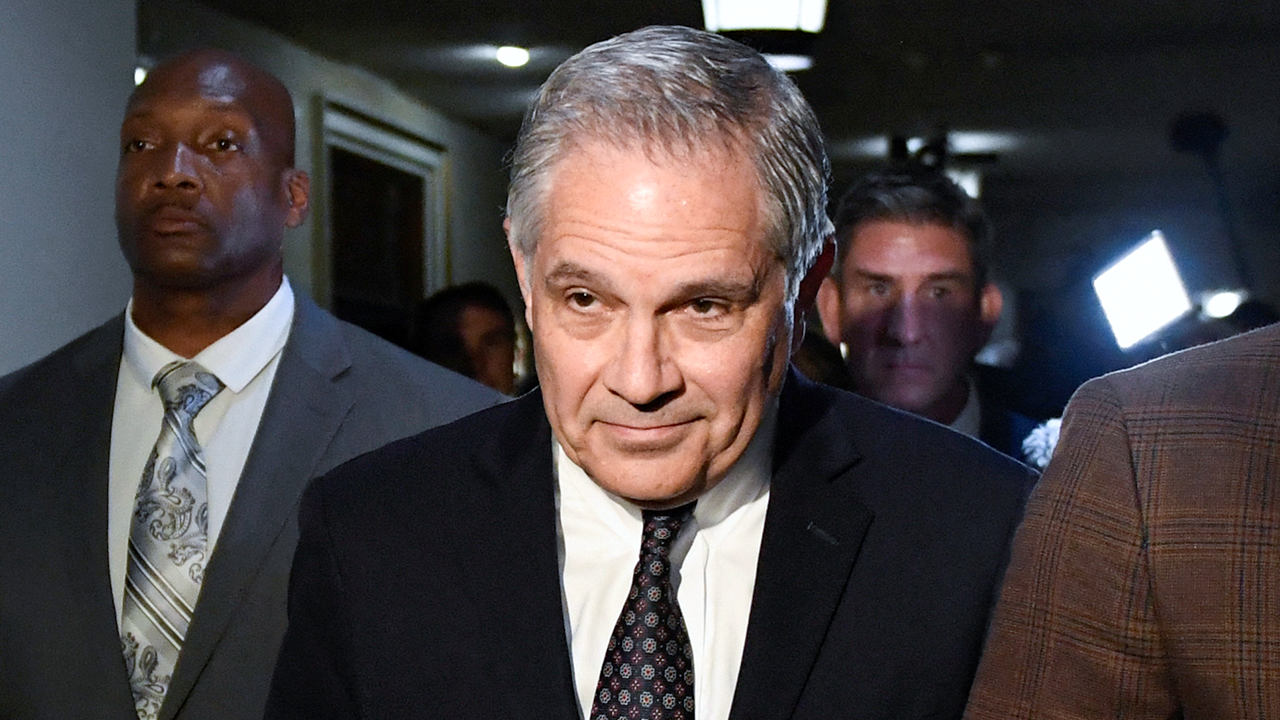“No one ever told me that grief felt so like fear,” wrote C.S. Lewis in “A Grief Observed” after the death of his wife. Grief often strips away our certainties, leaving us to fear if God is who we thought He was, or if our suffering has any meaning at all. In allowing grief to become his teacher, Lewis left a road map for others, showing how to sit with sorrow, process it, and respect both loss and trauma.
That understanding doesn’t come casually; it takes time. In that willingness to observe pain rather than manage it lies a quiet reverence, a recognition that some experiences are not meant to be conquered but understood.
Suffering doesn’t exist to make us louder or more righteous. It exists to make us wiser — to teach maturity, not mobilize outrage.
I watched a young widow step into public life just weeks after her husband’s death. The world called her strong — and maybe she is — but what I saw most was sorrow: raw, recent, and surrounded by noise.
We rush to praise courage yet hesitate to sit with grief. Pain now unfolds before an audience eager to watch and quicker still to turn sorrow into argument. The question isn’t whether we’ll look, but how. Will we meet grief with reverence or rhetoric?
Suffering doesn’t exist to make us louder or more righteous. It exists to make us wiser — to teach maturity, not mobilize outrage.
When nations grieve
What’s true for one heart is true for a nation. After 9/11, America was ready to fight — and we did. But what did we learn? How did we grow? What did we lose along the way? Pain can rally a nation, yet fail to mature its people. Did we take enough time to observe our national trauma?
The lives lost, the wounded carried home, and the enormous resources spent all suggest we did not. And what is true of nations is true of hearts: When we rush past pain, we forfeit the wisdom it offers.
The thought that God rules our pain can make us flinch. If God doesn’t rule it, suffering has no purpose — something to endure but not to transform. His sovereignty may not always appear kind, yet as William Cowper reminded us, “Behind a frowning providence, He hides a smiling face.”
In four decades as a caregiver, I’ve learned that trauma has its own language, one that will not be hurried or managed. It needs presence, patience, and space. Dr. Diane Langberg, who has spent her life among the wounded, often reminds us, “We dare not rush what God Himself is willing to sit with.” That is ministry: sitting beside, not speaking over.
The wisdom of mourning
The Jewish people understand this. When someone dies, the bereaved sit shiva — seven days of stillness and shared silence. Friends come not to fix but to accompany. Then comes sheloshim — 30 days to move slowly back toward life. For a parent, mourning extends a full year. Their wisdom tells us what our culture forgets: Mourning isn’t an interruption of life; it’s part of it.
We can learn from that rhythm. When tragedy strikes, our nation lowers its flags to half-staff. For a day or two, we pause, reflect, and pray. Then the flags rise again and life resumes. That is understandable for a country, but not for a soul. For the bereaved, the flag stays lowered long after the headlines fade.
Even the church can hurry the hurting. We mistake composure for recovery and public strength for peace. But grief that is forced to perform eventually breaks in private and sometimes spills into public.
When my wife, Gracie, lost her legs and entered decades of agony, healing did not come through attention or activity. It came through grace, tears, and time, mostly in obscurity. People see her sing or laugh and assume she has gotten over it, that she’s moved past it. What they do not see is that she had to redefine her life; this is her life. Someone once told me, “Process the pain privately, share the process publicly.” That wisdom has steadied us for years.
The quiet saints of suffering
Our culture is too quick to parade its wounded on stages when they would be better served by sitting in stillness, in pajamas or sweats, without having to put on makeup or smile for the cameras.
I’ve seen that truth in lives like Joni Eareckson Tada’s, who has lived with quadriplegia (paralysis affecting all four limbs and the torso) for nearly 60 years after a diving accident. In her, suffering has distilled faith into something deep and steady, strong enough to hold her and extend grace to others who suffer.
Forgiveness, like healing, takes time. To forgive is not to excuse or forget; it is to trust God with justice and mercy, believing He knows what we cannot. Forgiveness is faith expressed with open hands — the slow loosening of the grip around another’s throat.
Philip Yancey once observed that grace, like water, flows to the lowest places. That is where I have found it: in hospital corridors, in the lonely watches of the night, and in the long quiet of waiting rooms. Not in applause or attention, but in the hush where pain meets patience.
RELATED: The poisoned stream of culture is flowing through our churches
Photo by Anadolu / Contributor via Getty Images
The best model for us
Our culture distracts us from sorrow, rushing past pain as if speed can save us. “Don’t look in the rearview mirror,” people say. “Keep moving forward. Get past it.” But some wounds do not recede with distance. They remain, reshaping who we are and how we see the world. Grief, but only if we resist the urge to flee from it.
Scripture tells us that Jesus Himself was “a man of sorrows, acquainted with grief” (Isaiah 53:3). If He carried sorrow, then sorrow itself is not unclean. His setting apart for redemption doesn’t happen on cue, not in our timeframe. It unfolds in God’s time, often unseen and unhurried. Our pain, when entrusted to Him, becomes something consecrated, set apart not for ruin but for restoration. In His hands, our sorrow becomes sacred ground.
When trauma shatters a life, our calling is not to elevate but to shelter. We are called to stand nearby like those who sit shiva, unhurried and unafraid of silence. We can only observe another’s trauma, but God enters it. The wounds in His hands and side show us that He understands the anguish of loss, rejection, even death. His way is not avoidance but presence, and His model is a good one for us.
Solitude with God is not empty silence, but the stillness where His healing takes root. The psalmist wrote, “Be still, and know that I am God” (Psalm 46:10). In that quiet, we see what countless believers across the ages have discovered: Even what was meant for evil, God weaves for good. He does not waste our sorrow. When we trust His timing, the trauma observed gives way to the grace observed.
Read the full article here











![Epstein Called Himself ‘Tier One’ Sex Predator in Newly Released DOJ Interview [WATCH] Epstein Called Himself ‘Tier One’ Sex Predator in Newly Released DOJ Interview [WATCH]](https://www.rvmnews.com/wp-content/uploads/2026/02/2026.02.02-02.09-rvmnews-6980b018a44e5.jpg)
